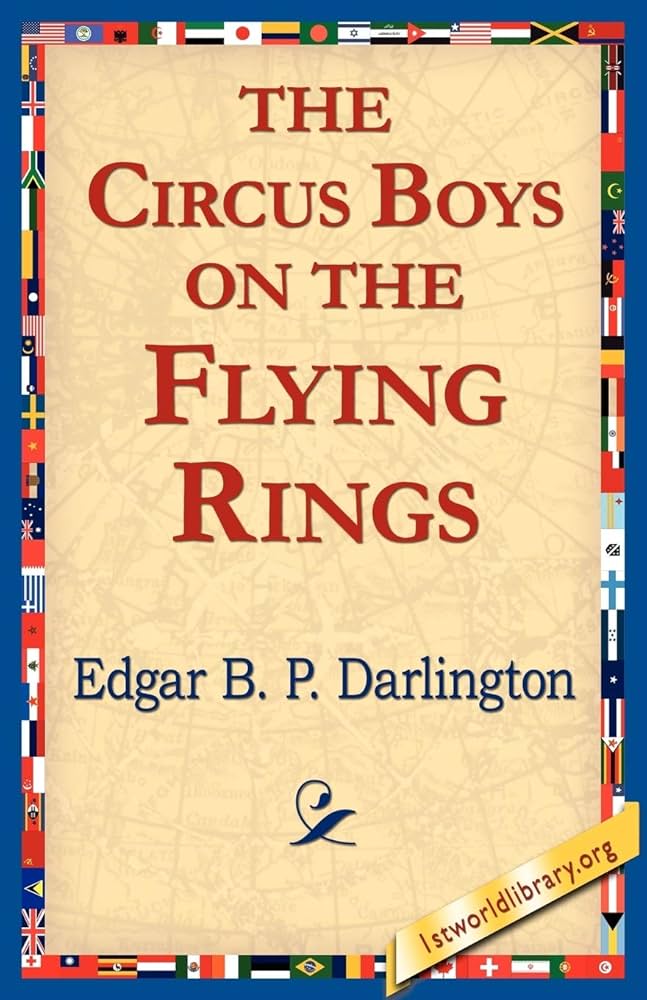Chapter XX — The circus boys on the flying Rings
byChapter XX opens with a burst of applause and a dose of unexpected recognition. Teddy, in the aftermath of his mule act mishap, finds himself rewarded rather than reprimanded. James Sparling, never one to miss a promotional opportunity, sees value in Teddy’s chaotic charm and offers him double pay for performing the same act intentionally. From a tent hand to a crowd favorite, Teddy’s ascent is quick and thrilling. His partnership with the “educated mule” becomes a source of laughter and ticket sales, though he wisely avoids adding a dangerous dive to his routine. It’s a moment of validation that Teddy didn’t expect but clearly enjoys. Meanwhile, the return of Phil Forrest adds balance to the narrative, as his presence steadies the more impulsive Teddy. Phil’s practical advice about saving money and sending it to Mrs. Cahill shows a maturity shaped by experience and responsibility beyond the circus ring.
The contrast between Teddy’s spontaneity and Phil’s discipline gives depth to their friendship. They talk of future goals, hinting at dreams of one day owning a show themselves. Phil’s suggestion of investing in their education underscores his long-term vision and awareness that circus fame might be fleeting. Their decision to continue physical training, encouraged by Mr. Miaco, reveals their seriousness about self-improvement. It’s not just performance that drives them, but purpose. These moments aren’t just filler—they show how ambition can coexist with fun, how a career in the circus is built as much on discipline as on spectacle. The physical strain of circus work is no small matter either; conditioning and careful preparation make the difference between showmanship and injury. Even laughter in the big top is supported by quiet moments of sweat, stretching, and strategy. These boys are performers and thinkers, learning how to juggle both worlds.
A visit to the menagerie tent brings back a sense of connection for Phil. Emperor, the elephant, greets him warmly, the bond between human and animal clearly mutual. There’s something grounding in this relationship—Emperor doesn’t care about paychecks or applause, just the familiarity of a kind voice. It’s a reminder that the circus is more than lights and illusions. Phil finds comfort in these quiet interactions, a kind of emotional reset after his recent fall. Animals often serve as a mirror in stories like these, reflecting loyalty and resilience without the complications of human egos. Emperor’s presence calms Phil, reinforcing why he loves this life even amid danger. That serenity, though, is short-lived.
The mystery around Phil’s fall resurfaces, casting a shadow over the applause. He begins to dig into what caused his accident, troubled by the possibility that it wasn’t just bad luck. Finding a filed-through wire and a suspicious tool hidden in his own trunk sends a chill down his spine. Sabotage isn’t a word lightly used, especially in a close-knit troupe where trust is essential. Phil confronts Mr. Sparling, presenting his findings not with fear, but with the steady voice of someone who values truth over blame. Sparling listens carefully, sensing the weight of the discovery, and though he says little, his concern is real. Their exchange is a quiet turning point—less drama, more clarity. Someone in the show may be hiding more than jealousy.
Rather than spiral into paranoia, Phil refocuses. He chooses to trust his instincts and strengthen his resolve, determined to stay alert without letting suspicion ruin the sense of family he feels with the circus. Even the threat of sabotage can’t shake his love for the performance, his respect for Mr. Miaco, or his hope for what lies ahead. Phil knows now that fame attracts shadows, but shadows can’t dim a spotlight fueled by discipline and courage. That choice—to keep going, to keep growing—cements him as more than just a boy on the flying rings. He’s a leader in training, a future that Mr. Sparling sees clearly. While Teddy brings energy and chaos, Phil brings clarity and heart.
The chapter ends without fanfare but with a thickening plot and deeper resolve. Friendship remains central, but now it’s paired with a looming question: who would want to hurt Phil? The mystery adds weight to the charm, grounding the lightness of the circus in something more real. Readers are left with a richer picture—this is no longer just a story of acts and applause. It’s about ambition, loyalty, and what it costs to rise in a world where every eye is watching.

